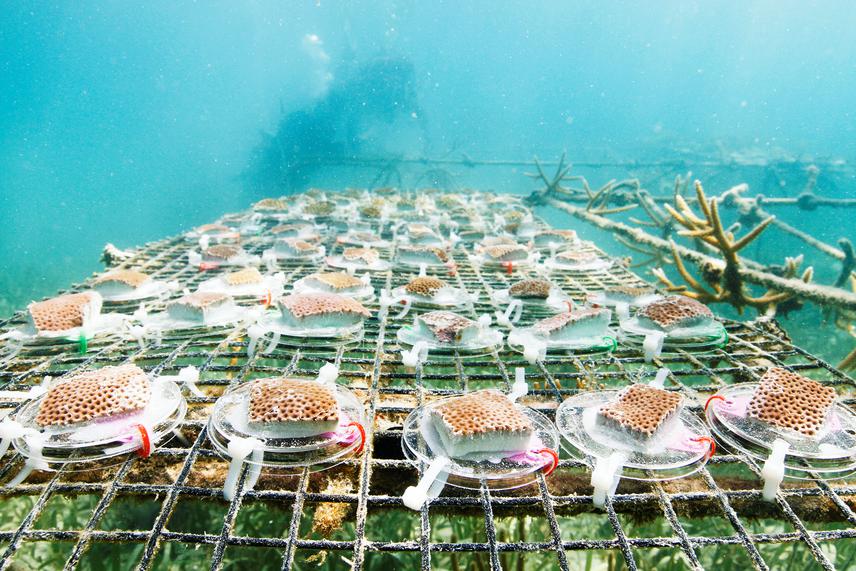Justin H Baumann
Other projects
28 Jul 2014
Characterizing Coral Resilience on the Belize Barrier Reef System Using Thermal History and Holobiont Physiology: Implications for Climate Change
10 Sep 2015
Continuing Research on Coral Acclimation on the Belize Barrier Reef System Using Thermal History and Holobiont Physiology
2 Nov 2016
Continuing Research on Coral Acclimatization on the Belize Mesoamerican Barrier Reef System
21 Feb 2018
Continuing Research on Coral Acclimatization on the Belize Mesoamerican Barrier Reef System
1.) Complete a 1.5 year coral reciprocal transplant experiment examining plasticity in coral stress response
2.) Train locals to be effective coral researchers and restoration experts
3.) Expand coral restoration activities to include more species and restore diverse reefs!

Belize is home to 80% of the Mesoamerican Barrier Reef System (MBRS). We are partnering with a Belize-based NGO called "Fragments of Hope" to continue work on this project. Fragments of Hope is based in Placencia, Belize, which is where we will make our home base during the reciprocal transplant and outplanting efforts enclosed here. We have transplanted corals between a near shore reef (False Caye) and an offshore reef (Silk Caye). We have deployed temperature loggers at each site to track changes in temperature over the course of the experiment and we will collecting historical data on temperature, salinity, and light penetration at each site using remote-sensing products. False Caye contains the reef that is nearest to Placencia, which is a major tourist destination in Belize. It is also near several major rivers and is likely subjected to high levels of local stress.
The Silk Cayes are some of the most pristine reefs in Belize and are part of a marine protected area. They are also a major tourist destination. Protecting and conserving these reefs is of economic and cultural significance to Belize. Our work will help understand how corals from these reefs are responding to stress and how the structure and function of these reefs may change in the future. Additionally, we will be working at these sites to find, fragment, and outplant resilient individuals of several coral species in order to maintain or improve coral diversity and ecosystem function.